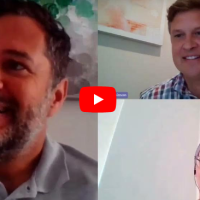By Chally Kacelnik
Do you ever find yourself interrupting people because you’re sure you know the end of their sentence? Do you ever find people glazing over as you talk, or responding to something you didn’t quite say because they hadn’t been paying full attention? Has anyone ever made an assumption about what you think or want based on their own biases rather than communicating with you properly?
Does this get frustrating in your personal life? How about when you’re trying to receive a service or communicate at work?
I borrowed an ebook from the library the other day. Unfortunately, I couldn’t get the file to download. I did some troubleshooting that made it clear it was a problem with the ebook rather than a problem on my end. I lodged an email ticket with the library letting them know the problem and what I’d tried.
I got an email back letting me know that other library patrons had been having trouble with the app, and to log out and log back in. When I wrote back that this hadn’t resolved my issue, I got a call. The library officer who’d been helping me out tried out a few things that I’d already done, and seemed surprised that she got the same results that I had – at which point it became clear she hadn’t read my initial email beyond registering that it was an ebook issue.
Now, this isn’t a huge problem for me – I’ve got other books to read, I got a pretty fast response from an excellent library service, and I’m sure a fresh ebook file will be coming my way soon. It is an illustrative situation, however, of someone relying on their own history and surface reading rather than attentive engagement. In my case, the officer hadn’t really read what I was saying. Instead, she read her own experience and expectations into it, and ended up spending more time on the issue than she would have if she had not assumed I was encountering another issue she comes across often in her work.
We’re all busy people, and we’re geared to make assumptions rather than genuinely be present and take the time to really listen. In an organisational or service context, this can have a vast range of consequences. In my case, the consequence was a little extra time spent. In other cases, I’ve seen this be destructive for relationships between staff, relationships with customers, and the integrity of business processes. People just stop trying eventually, because they know they won’t be heard – or else they start to be pretty loud about how difficult it is to deal with your organisation, from the inside or the outside.
Attentive listening is not easy work to do consistently, which is why it’s one of the social skills for leaders we cover in our leadership programs. Take a step back and take the time to really listen to what others are saying, asking questions if you need clarity. Model what it’s like to really make the effort to pay someone that courtesy rather than centring your own experience. You’ll learn much more from others, and you’ll get that respect back in return (or if not, it’s time to provide some respectful feedback). It sometimes takes humility to attentively and meaningfully listen to others, but it’s a skill worth honing for everyone’s sake.
At LKS Quaero, we support our clients with practical skills development for better work flow. For more information, visit us at lksquaero.com or follow us on LinkedIn, Facebook, and Twitter.










